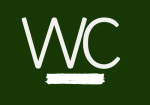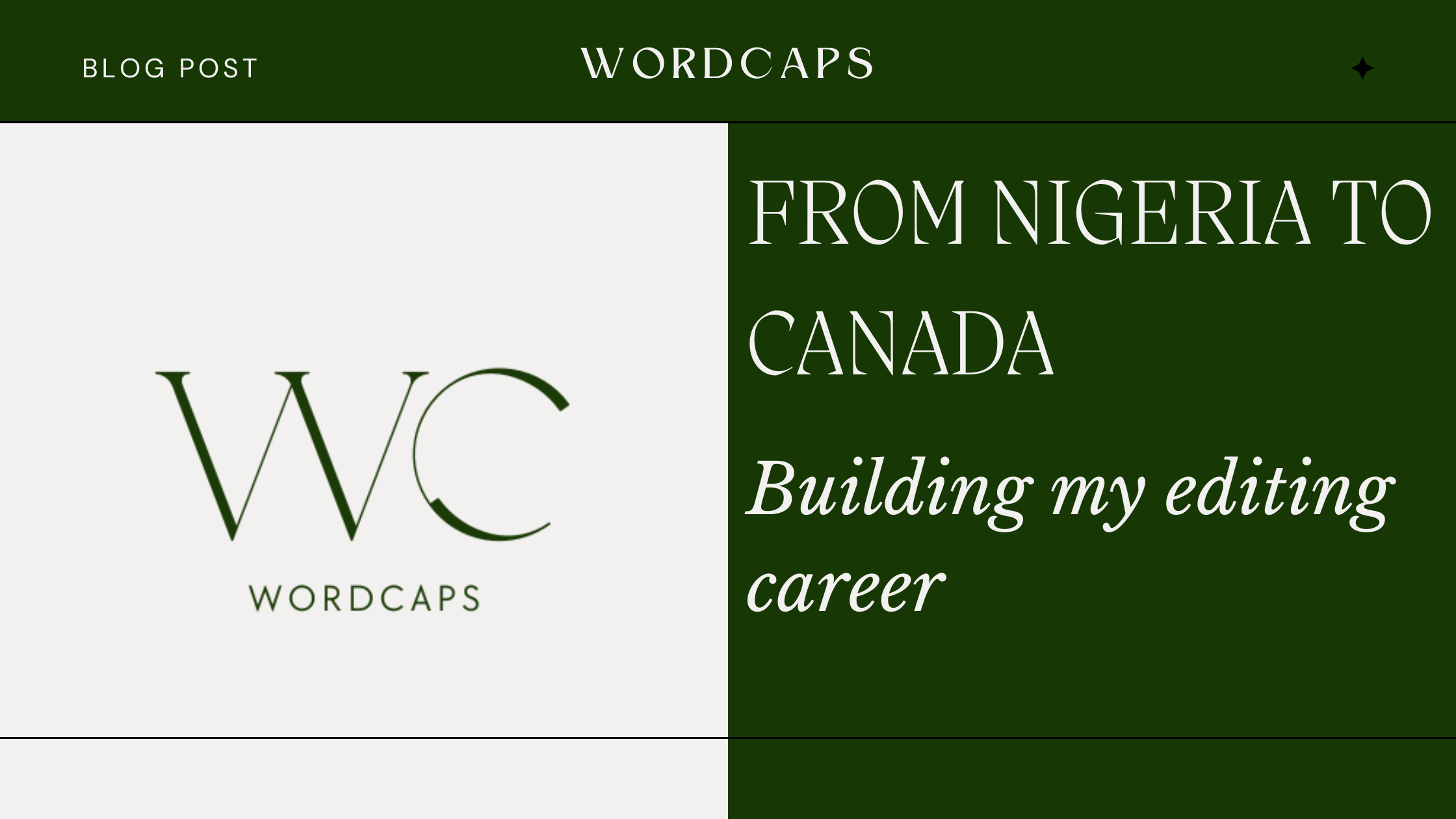When my family and I immigrated to Canada, I decided to focus on my editing career. However, I worried that the challenges of starting anew would be too great to bear and that it would be a long, lonely road. My fears were based on some myths. Below are some of these myths and the ways I dispelled them.
To tell you how I continued my editing career in North America, I must start at the beginning.
People Like Me
I first became interested in professional editing while studying at the University of Ibadan. I was studying for a master’s in communications and language arts, and the program included a publishing (or journalism?) course. Our small class took a trip to a publishing house in the nook of New Bodija—BookBuilders Editions Africa. It was there that I first met editors.
There they were, crafting words, eyes glued to the screen. I couldn’t believe there were people like me who enjoyed working with words and earned a living from it. While I continued my studies, I wrote a letter indicating my interest in working with them. After an interview and assessment, I began to work with BookBuilders on and off for about two years.
BookBuilders specialized in academic papers and biographies. As an editorial intern, I learned how to copy edit, proofread, and lay out documents. I also learned to work with academia and other word enthusiasts like me. BookBuilders was owned by an American, and this added another layer to my experience. She loved Adele’s music and celebrated Thanksgiving with us (I hope you’re resting in peace, Aunty Chris).
One of My Things
After my family moved to another city, I continued editing (in conjunction with other work) over the next seven years. During this time, I gained proficiency in editing fiction and other creative works. I also edited self-help books and business communication. I worked with Narrative Landscape Press and the Society for Book and Magazine Editors of Nigeria.
It was during these seven years that I grew as an editor. I discovered my strength in organizing content and massaging words until they felt right. And while I wasn’t watching, editing wriggled itself safely into my palm. It became one of my things. People saw it, too, and soon began to ask, “How do I write a book?” “Can you coach me?”
I started a creative writing course, which led to developing courses for others.
During this time, I also developed my writing skills and became known as a fiction writer. I self-published some of my work, and others were featured in literary journals and magazines. To my delight, I received awards from the Iceland Writers Retreat and MacDowell.
Back to editing.
In hindsight, I had nothing to be worried about, but here are the myths that almost deterred me.
Myth 1: I am not a “Native English speaker.”
Anyone who has worked in certain countries and tried to get a job on freelancing sites will recognize this phrase. It’s the phrase you hear when clients will not consider working with freelancers whose first language isn’t English because they assume they cannot properly write or edit in English. This barrier, while understandable in some instances, summarily tells a freelancer of Nigerian descent (for example) that they lack the skills to edit or write content for Native English speakers.
This myth replayed in my mind as I sent in applications for editing jobs. So, I decided to quell my concerns with knowledge. I started researching schools and programs until I found the Editing Certificate program at Simon Fraser University. I applied and got into the program.
Until then, I had not received formal training in editing, so this was an opportunity to update my knowledge and understand the Canadian publishing landscape. Going through this editing training affirmed that I am a good structural and stylistic editor and taught me new things, like technical editing and ethics in editing.
A few weeks before I started this program, I got a job as an editor. Somehow, I finished the program in one year (it’s a two- to five-year program) and with good grades.
Myth 2: Canadians communicate differently, so editing their work may be difficult
While this is true in some respects (for instance, Canadian spelling choices require extra attention), there’s nothing I have not been able to learn. Resources abound to clarify style choices, and a quick search will often produce the right answers.
I invested in writing and editing resources to boost my knowledge of style choices and address uncertainties as I began working as an editor in Canada. I also started to pay close attention to how Canadians speak to get a sense of their speech pattern and how this flows into their writing. This was crucial because I have found that people often write the way they speak, and understanding this would help me edit their work conscientiously.
Another thing I quickly understood as I began to study is the care that is taken to communicate when writing about Canada’s Indigenous Peoples. So, again, I studied (and continue to study) preferences for communicating about Indigenous Peoples. As someone who never really had to worry about marginalization in my home country, this demanded a considerable awareness of the struggles of Indigenous communities. You can’t edit respectfully if you don’t care to understand the people.
Myth 3: I will be required to do all kinds of editing
In Nigeria, I mostly did all types of editing because it was required. It was practically impossible for me to stick to one type of editing, so when I came to Canada, I assumed it would be the same. However, in Canada, I have enjoyed the liberty to determine my editing specialty because there are more work opportunities and clients looking for my specific skills.
I am a talented stylistic and structural editor. I do it efficiently and am happy to offer these services exclusively. I don’t have to do it all because I can collaborate with talented proofreaders and copy editors. How freeing for me!
Myth 4: I will be lonely.
As an editor in a new territory, finding communities I could join was crucial.
To be honest, I didn’t find many support groups; I even had to create one. However, I think this had more to do with the reclusive nature of editors than the editing community in my province. To combat this, I did two things: I started a WhatsApp group for editors, which I haven’t been very involved in (there’s that editor’s nature), and I decided to join Editors Canada.
Editors Canada is the association for editors in Canada. The association has branches and twigs across the country, and I decided to join and get involved in the Editors BC (Editors British Columbia) branch. Volunteering has, by far, been the most helpful way to connect with other editors. I started volunteering as a writer and editor for West Coast Editor, and after about a year, I was approached to join the executive as the publications chair and managing editor of West Coast Editor. I accepted!
Volunteering has exposed me to the inner workings of managing an editing community. I work with my co-executives to advance the editing profession in our province and produce professional development offerings that help BC editors sustain their businesses and grow in their craft.
These are the myths I had and have dispelled. Today, I work as a content marketing manager (a role heavily involving editing), volunteer with Editors Canada, and am starting to grow my editorial and communications consultancy business. If you’re considering moving to Canada to continue or start a career in editing, please know you can succeed. As long as you’re open-minded and have a mind to serve, you’ll be just fine.
I may have left some things out, so please ask any questions you have in the comments below.
Happy writing (or editing, in this case)!
PS: Please share this if you think someone else will find it useful. The buttons are below.


Published by